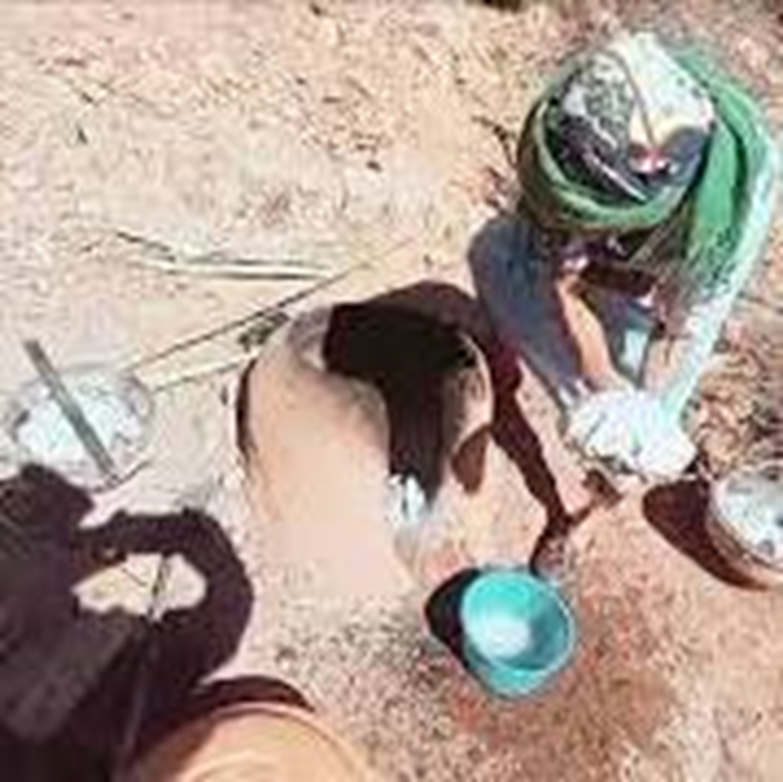When the darkness of the night becomes more merciful than the light of dawn: the nights of the Anti-Atlas Mountains

The dawn usually comes as a sign of the arrival of a new day. The chest expands in reception and praise for the life opportunity granted by the Creator, and the soul relaxes in celebration of the emergence of the sun’s light and the beginning of vitality after stagnation. People's feelings are models and what they love is doctrines.
The night is an opportunity to stay up late, spend the night, and have red nights for some. For lovers of romance, it is an opportunity to isolate themselves and contemplate the splendor of the stars in the sky. For most people, the stillness of the night is a temporary refuge of calm, an opportunity to fall asleep and rest from the fatigue of the day. The overwhelming majority are disturbed by the darkness, and terrified by the setting sun, announcing the blackening of the unknown. There are those who fear the arrival of the evening for fear of isolation and loneliness. In popular culture, sometimes during sleep, a sleeping donkey may haunt the night. And create trouble for him! Night is also a stage in which rituals and beings of the unseen world become active. The evil class emerges from its holes in the margins to practice immorality and aggression and commit crimes.
If the call of dawn is the sound of darkness clearing away, then the experience of those affected by the earthquake with the night is different.
Standards have changed for those affected. Night is a different time for those affected by the earthquake. An opportunity to escape from the bitter reality of the day, to isolate among the cold tents due to daily suffering. Total darkness provides relief to the eyes from the sight of devastation and misery. The night is a space for change and a time to dream of a more beautiful world, and to restore memories of the village in the colors of nature. Sleep has another longing and taste, the stage of communicating with the missing, conjuring the souls of the victims, dreaming of a sociable past and imagining living within the walls of decent housing, a symbol of stability and security, as was the case before September 8.

The population can no longer stand and cry over the ruins during the day, and circulate stories of the remnants of the earthquakes, the slowness of aid, the laxity of the guardians in reform, and living in waiting. When conditions get worse, the night becomes better.
The distance between us increased, circumstances differed, and aspirations were divided. When we impatiently await the rain, the affected people living in tents fear the blowing of winds, the sight of clouds, rain showers, and the flooding of the valleys, for fear of a humanitarian disaster worse than the earthquake.
Fate decreed that those affected must live again amidst measures of fear similar to those that science experienced as a result of the epidemic. Forced isolation during the Corona pandemic took away our humanity and most of our rights and social customs and turned them into a safe distance. The bitter experience of the pandemic has taught us that life is a blessing, social interactions are a longing, family visits are a longing, enjoying the freedom to roam is a pleasure, and ensuring the possession of a home that brings us together and possessions that provide warmth is not an easy right. A number of feelings and remnants of the epidemic are recalled by camp residents in the villages affected by the earthquake after they believed that it was a story from the news.

Based on the field experience of the Tiwizi Association for Social Development of Ait Abdallah during several solidarity field interventions to relief those affected by the earthquake in remote villages in the Anti-Atlas Mountains in the Taroudant Province, we maintained ties and communication with active civil society associations in those highlands, and we continued to ask about the conditions of families whose generosity and noble human values we witnessed. The jugular vein continued with these people who raised the question despite the need, and shared with us the salt of their simple food despite the scarcity, and the cup of warm tea warmed the goodness of their intentions. For them we commemorate.
The long wait, the miserable conditions of the residents, and the devastated souls in the affected villages brought back to the eyes of those afflicted the nightmare of the pandemic, where they were deprived of the enjoyments of the world, visits were reduced, and they were forced to make an economy of scarcity. They are fed up with the costs of life and those who live as refugees in their homeland.If you fast in urban areas, you will have a reward, and if you fast in the cold of the mountains and be hungry among tents, in the midst of desolation, and lack of means, you will have two rewards. Holding refugee status in your homeland and in your hometown after running out of 6 months, during which they exceeded the legal residency period normally granted in visas, is an insult that hurts the citizen.
In short, there are many nights in the Atlas Mountains, a dream saved from reality, and darkness that obscures the painful scenes of daylight's devastation.

Finally, reaching this point in the article is a solidarity initiative in itself, because neither writing nor reading about the earthquake no longer appeals to souls, let alone living amidst its devastation.
Good night, more secure and reassured souls in the light of day and the darkness of the night.
Source: websites

